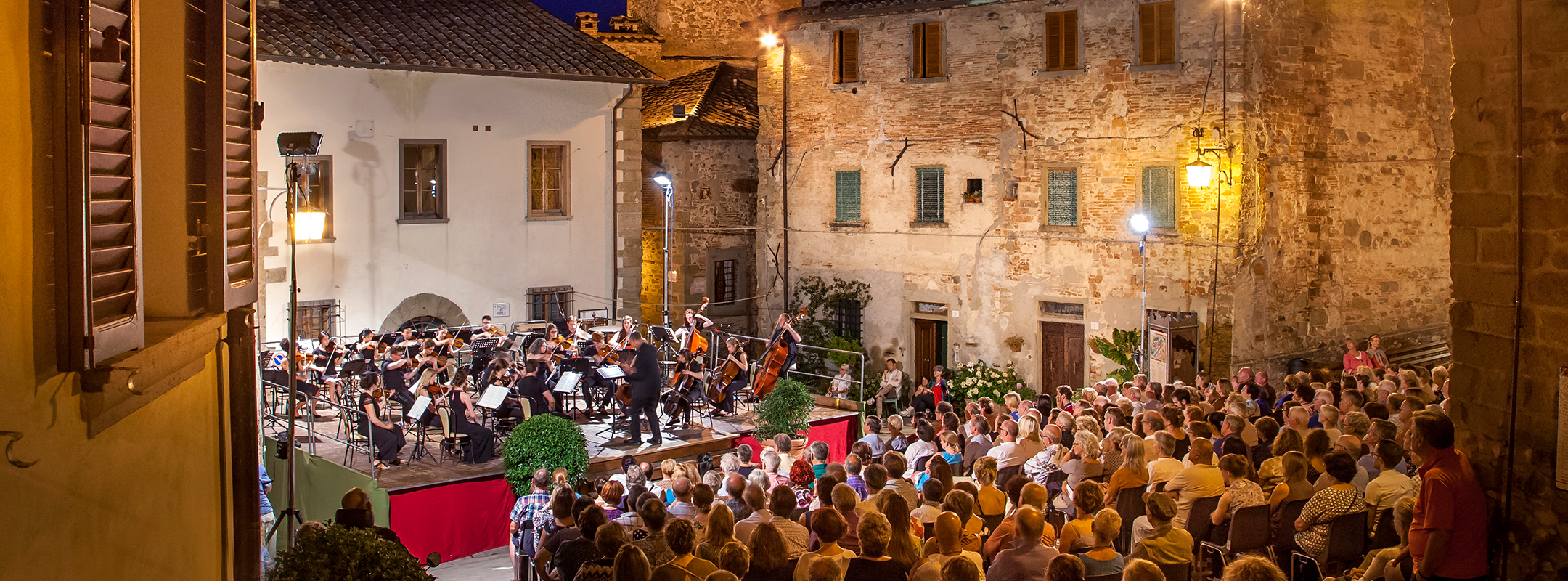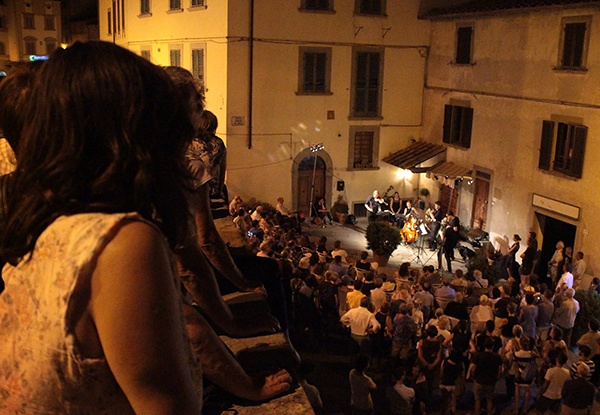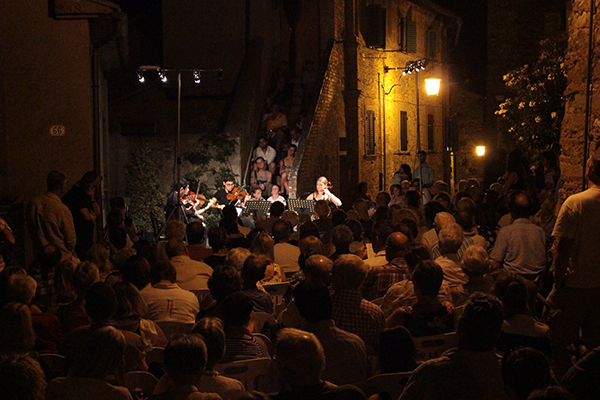
Communications Director
The typical classical concert format is well known. It’s the result of hundreds of years of evolution, but essentially boils down to this: you arrive at a concert hall, you sit down, and you listen. For the next couple of hours, that’s the point from which you’ll experience the music, see the musicians and form your opinions. One view, one space, one acoustic.
But why not try something different? What happens if instead of a concert hall being your venue, you use an entire town as the stage?As part of the Anghiari Festival in July, we presented a ‘Progressivo’ concert which weaved its way around the ancient streets and squares of a Tuscan hill-town. At every turn came a new chamber group and a new piece of music to experience, each setting offering a unique combination of sound, backdrop and character. There was Mozart snuggled beneath the rugged bricks of the bell tower, some Debussy where a turn of the head unveiled a vista of shimmering buildings in the valley below, and the charm of Strauss’ Til Eulenspiegel performed in front of a row of shops flanked by onlookers peering down from the terraces above. During the evening we traversed six venues, with the audience ambling from one to the next after each piece.

Of course, in a concert like this you’ll never hear every detail of the music as you would in the Wigmore Hall. Church bells clang out on the hour, pans clatter from the kitchens of surrounding houses, and every so often the high-pitched drone of a Vespa climbing the neighbouring hills drifts its way into the performance. Each space also offers its own acoustic charm, with walls jutting out at unusual angles and sound drifting up into the ether above. The musicians have to adjust their playing to suit the space, and sometimes tweak the dynamics or tempos of a piece of music to make it as audible as possible for the crowd. The music is adapting to suit the spaces.
But to focus on acoustic imperfection misses the point. The joy of the Progressivo is that you experience sounds in entirely unexpected settings, as buildings, views and even the smell of the air influence your involvement in the music. The whole character of Anghiari infuses the performance, each stop adding unanticipated extra emotion and associations to the notes being played.

It works the other way, too. Walking through the town the following day, you’re aware the squares have taken on a new meaning. Where previously it was simply a picturesque space in a town, it now resonates with the memories and emotions of the performance you saw there. The remnants of the music hang in the air, as do the reactions of the dozens of people who shared the experience with you. Music has shaped space, and transformed your relationship with it.
Four months on, it’s still got me thinking. London offers its own additional challenges to open-air performances – sirens wail, aeroplanes roar overhead, trains rumble by – but where could we host a metropolitan equivalent? Perhaps a wander along the Southbank; perched atop the roof garden of the Queen Elizabeth Hall, under the concrete eaves of the National Theatre, finishing in the courtyard behind the Oxo Tower. Or maybe in the sedate squares of Bloomsbury, with backdrops of Georgian terraces, the British Museum, and the towering Senate House to set the mood.
Which spots spring to mind for you? Where could you imagine a chamber group appearing, and what might they play? There’s a whole world out there just waiting for music. Let’s go exploring.
Every July, Southbank Sinfonia makes its home at the Anghiari Festival in Tuscany. The festival is renowned for its friendly informality, spectacular setting away from the tourist trail and the chance to enjoy a great range of classical music up close every day. Find out more about the Anghiari Festival here.